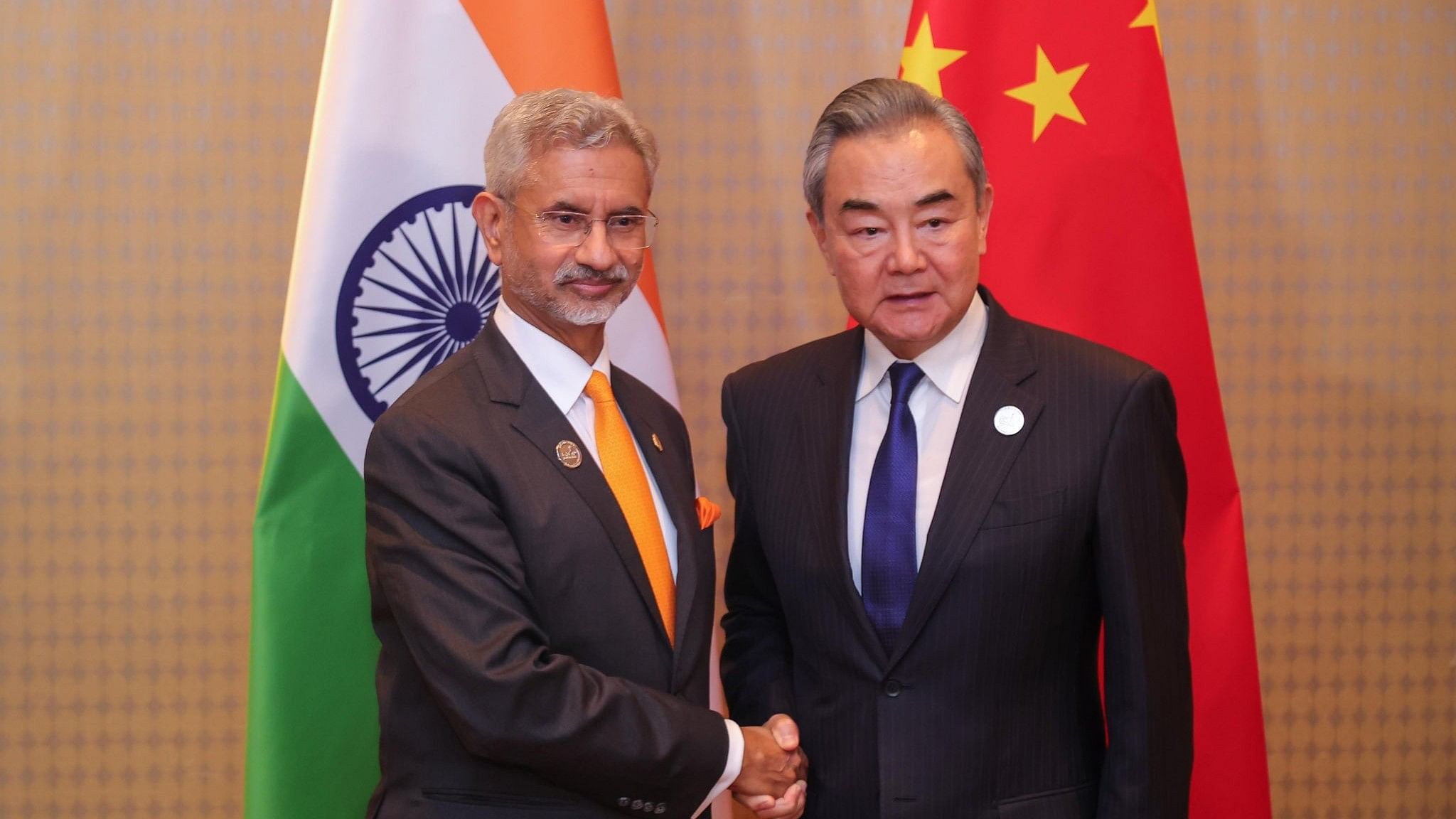
Chinese Foreign Minister Wang Yi (R) with External Affairs Minister S Jaishankar.
Credit: X/@DrSJaishankar
New Delhi: With the military stand-off along the Line of Actual Control in eastern Ladakh now over, New Delhi and Beijing on Tuesday discussed the resumption of the Kailash Mansarovar Yatra and renewal of the bilateral MoUs for China to share with India hydrological data about transboundary rivers.
As External Affairs Minister S Jaishankar met Chinese Foreign Minister Wang Yi on the sideline of the G20 summit in Rio de Janeiro where they also discussed restarting direct flights between the cities in the two countries and the commemorative activities to celebrate the 75th anniversary of the launch of the diplomatic relations between the two nations.
Jaishankar and Wang agreed that the disengagement or mutual withdrawal of frontline troops by the Indian Army and the Chinese People’s Liberation Army from the face-off points along the LAC – the de facto boundary between the two nations – in eastern Ladakh had “contributed to the maintenance of peace and tranquillity”, according to a press release issued by the Ministry of External Affairs in New Delhi after the ministers met in Rio de Janeiro.
“We noted the progress in the recent disengagement in the India-China border areas and exchanged views on the next steps in our bilateral ties,” Jaishankar posted on X after meeting Wang.
The discussions focused on the next steps in India-China relations. The ministers agreed that a meeting between the special representatives of the two nations for boundary negotiations and between the foreign secretary of India and the vice foreign minister of China would take place soon.
They met less than a month after Prime Minister Narendra Modi and Chinese President Xi Jinping had held a bilateral meeting on the sideline of the BRICS summit at Kazan in Russia on October 23. Modi-Xi meeting was the first between the two in five years and it followed an agreement between the two sides on the arrangement of patrolling by the Indian Army and the Chinese PLA in Depsang and Demchok areas – the last two remaining stand-off points along the LAC.
The disengagement of the Indian and Chinese troops in Depsang and Demchok marked the end of the stand-off which had started in April-May 2020 when the Chinese PLA had deployed a large number of soldiers in an aggressive move to push the LAC westward and the Indian Army had also counter-deployed additional troops.
“We should send more positive signals and do more things that are conducive to the exchanges between the two countries; enhance mutual trust and have less suspicion; carry out more cooperation and consume less. We should strive to make practical progress in resuming direct flights, sending journalists to each other, and facilitating visas as soon as possible,” Wang was quoted telling Jaishankar in a press release by the Chinese Ministry of Foreign Affairs in Beijing.
He suggested that both sides should plan commemorative activities and encourage exchanges and visits in all fields and at all levels on the occasion of the 75th anniversary of the establishment of diplomatic relations between India and China.
Since the 1980s, the MEA has been organising an "official" Kailash Mansarovar Yatra every year, in accordance with bilateral pacts between India and China. Prime Minister Narendra Modi's first meeting with Chinese President Xi Jinping in New Delhi in September 2014 saw China finally accepting the long-pending request from India to open another route for the yatra as an alternative to the one via Lipulekh Pass, which not only requires trekking for several days but also turns worse if the weather turns inclement. The new route for the pilgrimage through Nathu La was opened in 2015. It was then hailed by both New Delhi and Beijing as an important confidence-building measure initiated by both governments.
The annual pilgrimage was suspended in 2020 due to the Covid-19 outbreak and was not restarted as the relations between the two nations nosedived over the military stand-off in eastern Ladakh.
The bilateral MoUs for China to share hydrological data about Brahmaputra (Yaluzangbu or Tsangpo in China) and Sutlej (Lungqen Zangbo) with India have also not been renewed since 2018 and 2023 respectively.
